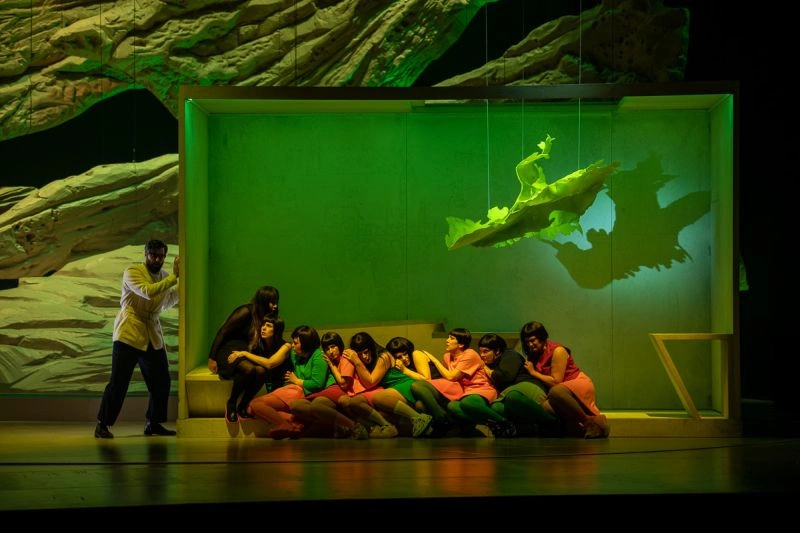Ewelina Marciniak continues her exploration of Wagner's grand narrative of the Nibelung myth
Audiences in Bern were delighted with the premiere of Wagner's "Golden Rhine." Then the Polish director continued her work with the production of "Valkyrie." After its staging, the "Süddeutsche Zeitung" wrote Ewelina Marciniak with her staging of "Valkyrie" in Bern consistently realizes Wagner's "Ring" while telling a deeply human story. The third part of Richard Wagner's The Ring of the Nibelung tells the story of the young hero Siegfried in an almost comical way, almost making us forget that the origins and complications of the previous story, of which the hero of course knows nothing, deprive the young man of what he is most likely seeking: Freedom. The musical direction is once again in the hands of chief conductor Nicholas Carter. Premiere 14 April.
"Gold of the Rhine", directed by Marciniak, had its premiere on the stage of the theater in Bern. Thus, "The Ring" came to the Swiss capital for the first time ever. This was also an operatic debut for the Polish director, who has proven both in Poland and Germany that she is not afraid to reach for great works. She has staged Jelinek, Tokarczuk or Houellebecq. She is very astute - her works are sometimes ahead of their time, which doesn't always make them easy to read. But she is always interested in one thing: human beings and the question of why they do what they do.
Born in 1984, Marciniak and a year younger Australian Nicholas Carter, chief conductor of the Bern theater, are working together to build "The Ring," which, as can be inferred from the first two parts, tells a human story to the core. This story needs no myths and borrows no superstructure in any way. Carter consistently eschews any kind of sound intimidation strategies, conducting intimately, yet extremely precisely, at times conservatively - during the lengthy dialogues in the second act, one would have asked for a little more tension to be built up. However, the end, in which Wotan bids farewell to Brunhilde, both musically and scenically turns into a masterpiece.
Above all, Marciniak tells the story of Wotan. As in The Gold of the Rhine, she has worked with a young and for the occasion well-chosen dance troupe, which duplicates the characters, illustrates their past, generates a series of associations, comments. It is funny, ironic, at times dazzling: when the procrastinating and unwilling to be heroic Siegmund (Marco Jentzsch) meets Sieglinde, the pair of dancers play love, kissing and biting each other as charmingly as possible. Or when Fricka, full of familiarity and Claude Eichenberger's charming sadness, persuades Wotan with all the power of persuasion about the sanctity of marriage and the impossibility of an incestuous relationship, eight pregnant women appear on stage. They surround and attack the eager to escape Wotan.
And Seth Carico as Wotan gave a fantastic debut. He is young, slim, masculine, sings with a deep bass and plays straightforwardly phenomenal. Marciniak's great talent is revealed in the details of her acting craftsmanship, even more so than in her stage-associative vision. So we watch Wotan, a young dad, with a child dancer couple, Siegmund and Sieglinde. He is a playful, dreamlike father enjoying family happiness. Towards the end, we see him once again with his now grown-up daughter - he folds an origami swan, packs her things into a backpack cuddling her like a lost child. He sobs bitterly. And everything becomes clear, because also Yanhua Liu as Brunhilde makes a phenomenal debut; she is a wonderful daughter. And it is thanks to these two (but not only) that this 'Valkyrie' is closer to humanity than to myth. - emphasised Egbert Tholl in the Süddeutsche Zeitung.
The third part of Richard Wagner's The Ring of the Nibelung tells the story of the young hero Siegfried in an almost comical way, almost making us forget that the origins and complications of the previous story, of which the hero of course knows nothing, deprive the young man of what he is most likely seeking: Freedom. The musical direction is once again in the hands of chief conductor Nicholas Carter.
